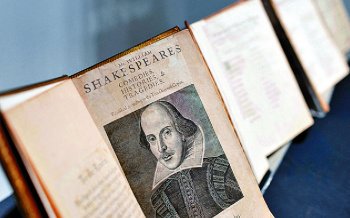News and Events
In our previous column, we looked at the characteristics of English language and literature courses in the ICGSE and International Baccalaureate Middle Years Programme. In this, we compare the two.
What are the advantages of choosing IGCSE?
One of the most significant advantages of IGCSE is its target-oriented approach.
Compared to the MYP, the IGCSE English language and literature courses have clearly defined assessment scopes. Schools set the teaching content based on the examination board's framework, and students are assessed based on specific criteria.
This can provide a more structured and focused learning experience for students who prefer a clear goal and a systematic approach.
Furthermore, universities and educational institutions worldwide widely recognize and accept the IGCSE. The certificate obtained after completing the IGCSE courses holds lifelong value and can benefit students when applying to colleges or pursuing higher education.
The IGCSE curriculum also emphasizes developing writing skills in both creative and directed writing. This can benefit students keen on honing their writing abilities and effectively expressing their thoughts.
What are the advantages of choosing MYP?
Choosing the MYP English language and literature courses can also offer several advantages. One of the primary strengths of the MYP is its focus on holistic development and fostering critical thinking skills.
The MYP curriculum encourages students to explore literature from various cultures and perspectives, enabling them to develop a broader understanding of the world.
It emphasizes analytical thinking, interpretation of texts, and the development of personal responses. Students are encouraged to express their opinions, discuss, and develop their unique writing styles.
Additionally, the MYP strongly emphasizes independent learning and inquiry-based approaches.
Students are encouraged to explore texts and topics of interest, conduct research, and develop their lines of inquiry. This can foster a sense of curiosity, self-motivation, and intellectual independence.
Moreover, the MYP provides a smooth transition to the Diploma Programme, the next stage of the IB curriculum. The skills and knowledge acquired during the MYP can provide a solid foundation for success in the IBDP.
Ultimately, the choice between IGCSE and MYP English language and literature courses depends on various factors, including the school's educational philosophy, the student's preferences and learning style, and future academic goals. Parents and students should carefully consider these factors and consult with school counsellors or educators to make an informed decision.
Is it feasible to transition from IGCSE to IBDP?
The design of the IGCSE English language and literature courses does not explicitly align with the IBDP, unlike the MYP, though some of the content covered in the IGCSE courses closely corresponds with the IBDP English language and literature curriculum.
For example, in the IGCSE English language course, students must attempt creative and transactional writing. While these skills benefit students' writing skills, if students intend to take English as their IBDP Language A, these genres will not be included in the IB exams and are more closely related to Language B. Therefore, the knowledge acquired in IGCSE may not seamlessly align with the entire IBDP curriculum, and students will need more time to adapt to the new teaching content.
As MYP schools have the autonomy to design their curriculum, they can align their courses with the IBDP content to facilitate a smoother student transition.
Students studying IGCSE courses on the other hand may encounter differences in content when transitioning to the IBDP.





